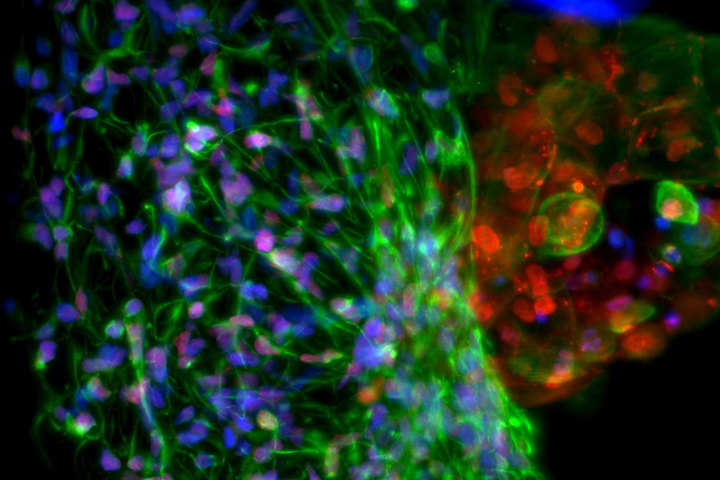Modifying the Tumor Microenvironment to Make Treatment More Effective

Can an investigational drug change the environment around a tumor to help anti-cancer agents reach the tumor more effectively?
The tumor microenvironment is made up of the cells, molecules, and blood vessels that surround a tumor to help feed and protect it. The microenvironment also affects how chemotherapy drugs reach the tumor. Researchers are testing a new drug that modifies the tumor microenvironment and allows chemotherapy to be taken up by the tumor. They are looking at the safety of the new drug.
What Is CEND-1?
A characteristic of the tumor microenvironment of pancreatic cancers is the stroma, a thick, dense layer of connective tissue that protects the tumor from immune responses. The stroma is part of the tumor microenvironment. In pancreatic cancer the tumor microenvironment limits immune response and impedes the delivery of pancreatic cancer treatments.
The drug CEND-1 has been developed to overcome those barriers by targeting and penetrating the protective stroma and modifying the tumor microenvironment to make the cancer more receptive and susceptible to immune responses, chemotherapy, or other treatments. It works by homing in on signals sent out by proteins found only in the blood vessels of tumors, but not in the blood vessels of healthy tissues. CEND-1 finds and binds itself to these proteins, triggering the activation of a novel uptake pathway that causes anticancer drugs to selectively penetrate solid tumors.
CEND-1 was granted Orphan Drug Designation by the FDA for the treatment of pancreatic cancer in January 2019, and Fast Track Development status in July 2021.
How the Trial Works
The phase IB/IIA trial is for patients with pancreatic cancer that can be surgically removed or is borderline surgically removable. The trial is also being tested for use with certain colon or appendix cancers. For pancreatic cancer patients, CEND-1 is being tested in combination with the chemotherapy regimen FOLFIRINOX.
Pancreatic cancer participants will have their tumor biopsied for immune profiling, then undergo chemotherapy with FOLFIRINOX and CEND-1. After the chemotherapy is completed, participants will have surgery to remove their tumor.
We encourage you to consult your physicians for clinical trials that may be right for you. The website ClinicalTrials.gov provides more details about this trial as well as many others. You can visit the Let’s Win Trial Finder for a list of all active pancreatic cancer clinical trials.





